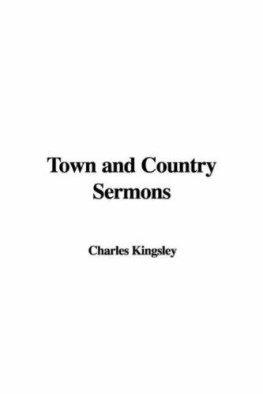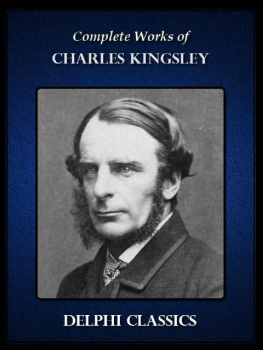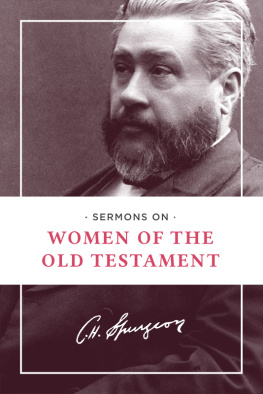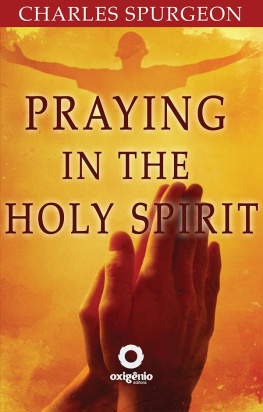Charles Kingsley - Town and Country Sermons
Here you can read online Charles Kingsley - Town and Country Sermons full text of the book (entire story) in english for free. Download pdf and epub, get meaning, cover and reviews about this ebook. year: 2004, publisher: IndyPublish, genre: Religion. Description of the work, (preface) as well as reviews are available. Best literature library LitArk.com created for fans of good reading and offers a wide selection of genres:
Romance novel
Science fiction
Adventure
Detective
Science
History
Home and family
Prose
Art
Politics
Computer
Non-fiction
Religion
Business
Children
Humor
Choose a favorite category and find really read worthwhile books. Enjoy immersion in the world of imagination, feel the emotions of the characters or learn something new for yourself, make an fascinating discovery.
- Book:Town and Country Sermons
- Author:
- Publisher:IndyPublish
- Genre:
- Year:2004
- Rating:4 / 5
- Favourites:Add to favourites
- Your mark:
- 80
- 1
- 2
- 3
- 4
- 5
Town and Country Sermons: summary, description and annotation
We offer to read an annotation, description, summary or preface (depends on what the author of the book "Town and Country Sermons" wrote himself). If you haven't found the necessary information about the book — write in the comments, we will try to find it.
Town and Country Sermons — read online for free the complete book (whole text) full work
Below is the text of the book, divided by pages. System saving the place of the last page read, allows you to conveniently read the book "Town and Country Sermons" online for free, without having to search again every time where you left off. Put a bookmark, and you can go to the page where you finished reading at any time.
Font size:
Interval:
Bookmark:
This eBook is for the use of anyone anywhere at no cost and with
almost no restrictions whatsoever. You may copy it, give it away or
re-use it under the terms of the Project Gutenberg License included
with this eBook or online at www.gutenberg.org
Title: Town and Country Sermons
Author: Charles Kingsley
Release Date: March 10, 2004 [eBook #11536]
Language: English
***START OF THE PROJECT GUTENBERG EBOOK TOWN AND COUNTRY SERMONS***
Transcribed by David Price, email ccx074@coventry.ac.uk
(Preached before the Queen.)
Philippians ii. 5-11. Let this mind be in you, which was also in Christ Jesus: who, being in the form of God, thought it not robbery to be equal with God: but made himself of no reputation, and took upon him the form of a servant, and was made in the likeness of men: and being found in fashion as a man, he humbled himself, and became obedient unto death, even the death of the cross. Wherefore God also hath highly exalted him, and given him a name which is above every name: that at the name of Jesus every knee should bow, of things in heaven, and things in earth, and things under the earth; and that every tongue should confess that Jesus Christ is Lord, to the glory of God the Father.
This the first day of Passion Week; and this text is the key-note of Passion Week. It tells us of the obedience of Christ; of the unselfishness of Christ; and, therefore, of the true glory of Christ.
It tells us of One who was in the form of God; the Co-equal and Co-eternal Son; the brightness of his Fathers glory, the express image of his Fathers person: but who showed forth his Fathers glory, and proved that he was the express likeness of his Fathers character, by the very opposite means to those which man takes, when he wishes to show forth his own glory.
He was in the form of God. But he did not (so the text seems to mean) think that the bliss of God was a thing to be seized on greedily for himself. He did not think fit merely to glorify himself; to enjoy himself. He was not like the false gods of whom the heathen dreamed, who sat aloft in heaven and enjoyed themselves, careless of mankind.
No. He obeyed his Father utterly, and at all costs. He emptied himself (says St. Paul). He took on him the form of a slave. He humbled himself. He became obedient; obedient to death; and that death the shameful and dreadful death of the cross.
Therefore God has highly exalted him; has declared him to be perfectly good, worthy of all praise, honour, glory, power, and dominion; and has given him a name above all names, the name of JesusSaviour. One who saved others, and cared not to save himself.
And therefore, too, God has given him that dominion of which he is worthy, and has proclaimed him Lord and Creator of all beings and all worlds, past, present, and to come.
It is of him; of his obedience; of his unselfishness, that Passion Week speaks to us. It tell us of the mind of Christ, and says, Let this mind be in you, which was also in Christ Jesus.
How, then, shall we keep his Passion Week? There are several ways of keeping it, and all more or less good. Wisdom is justified of all her children.
But no way will be safe for us, unless we keep in mind the mind of Christobedience and self-sacrifice.
Some, for instance, are careful this week to attend church as often as possible; and who will blame them?
But unless they keep in mind the mind of Christ, they are apt to fall into the mistake of using vain repetitions, as the heathen do; and of fancying, like them, that they shall be heard for their much speaking, forgetting their Father in heaven knows what they have need of, before they ask him. And that is not like the mind of Christ. It is not like the mind of Christ to fancy that God dwells in temples made with hands; or that he can be worshipped with mens hands, as though he needed anything; seeing he giveth to all life, and breath, and all things. For in him we live, and move, and have our being; and (as even the heathen poet knew), are the offspring, the children, of God.
It is not according to the mind of Christ, to worship God as the heathen do, in order to win him to do our will. It is according to the mind of Christ to worship God, in order that we may do his will; to believe that Gods will is a good will, good in itself, and good for us, and for all things and beings; and, therefore, to ask for strength to do Gods will, whatever it may cost us. That is the mind of Christ, who came not to do his own will, but the will of him who sent him; who taught us to pray, as the greatest blessing for which we can ask, Father, thy will be done on earth, as it is in heaven; who himself, in his utter agony, cried, Father, not my will, but thine, be done.
Therefore, it is good to go to church; and good, for some at least, to go as often as possible: but only if we remember why we go, and whom we go to worshipa Father, who asks of us to worship him in spirit and in truth. A Father who has told us what that worship is like.
Is this (God asked the Jews of old) the fast which I have chosen? Is it a day for a man to afflict his soul, and bow down his head like a bulrush, and to spread sackcloth and ashes under him (playing at being sad, while God has not made him sad)? Wilt thou call this a fast, and an acceptable day to the Lord?
Is not this the fast which I have chosen? to loose the bands of wickedness, to undo the heavy burdens, and to let the oppressed go free, and that ye break every yoke? Is it not to deal thy bread to the hungry, and to bring the poor that are cast out to thine house; when thou seest the naked, that thou cover him, and that thou hide not thyself from thine own flesh.
This is that pure worship and undefined before God and the Father, of which St. James tells us; and says that it consists in thisto visit the fatherless and widows in their affliction; and to keep ourselves unspotted from the world.
In a word, this worship in the spirit, and in truth, is nought else but the mind of Christ. To believe in, to adore the Fathers perfect goodness; to long and try to copy that goodness here on earth. That is what Christ did utterly and perfectly, that is what we have to do, each according to our powers; and without it, without the spirit of obedience, all our church-going is of little worth in the eyes of our heavenly Father.
Others, again, go into retirement for this week, and spend it in examining themselves, and thinking over the sufferings of Christ. And who, again, will blame them, provided they do not neglect their daily duty meanwhile?
But they, too, need to keep in mind the mind of Christ, if they mean to keep Passion Week aright.
They need it, indeed. And such a man, before he shuts himself up, and begins to examine himself, would do well to examine himself as to why he is going to examine himself, and to ask, Why am I going to do this? Because it is my interest? Because I think I shall gain more safety for my soul? Because I hope it will give me more chance of pleasure and glory in the next world? But, if so; have I the mind of Christ? For he did not think of his own interest, his own gain, his own pleasure, his own glory. How is this, then? I confess that the root of all my faults is selfishness. Shall I examine into my own selfishness for a selfish endto get safety and pleasure by it hereafter? I confess that the very glory of Christ is, that there is no selfishness in him. Shall I think over the sufferings of the unselfish Christ for a selfish endto get something by it after I die? I am too apt already to make myself the centre, round which all the world must turn: to care for everything only as far as it does
Font size:
Interval:
Bookmark:
Similar books «Town and Country Sermons»
Look at similar books to Town and Country Sermons. We have selected literature similar in name and meaning in the hope of providing readers with more options to find new, interesting, not yet read works.
Discussion, reviews of the book Town and Country Sermons and just readers' own opinions. Leave your comments, write what you think about the work, its meaning or the main characters. Specify what exactly you liked and what you didn't like, and why you think so.











